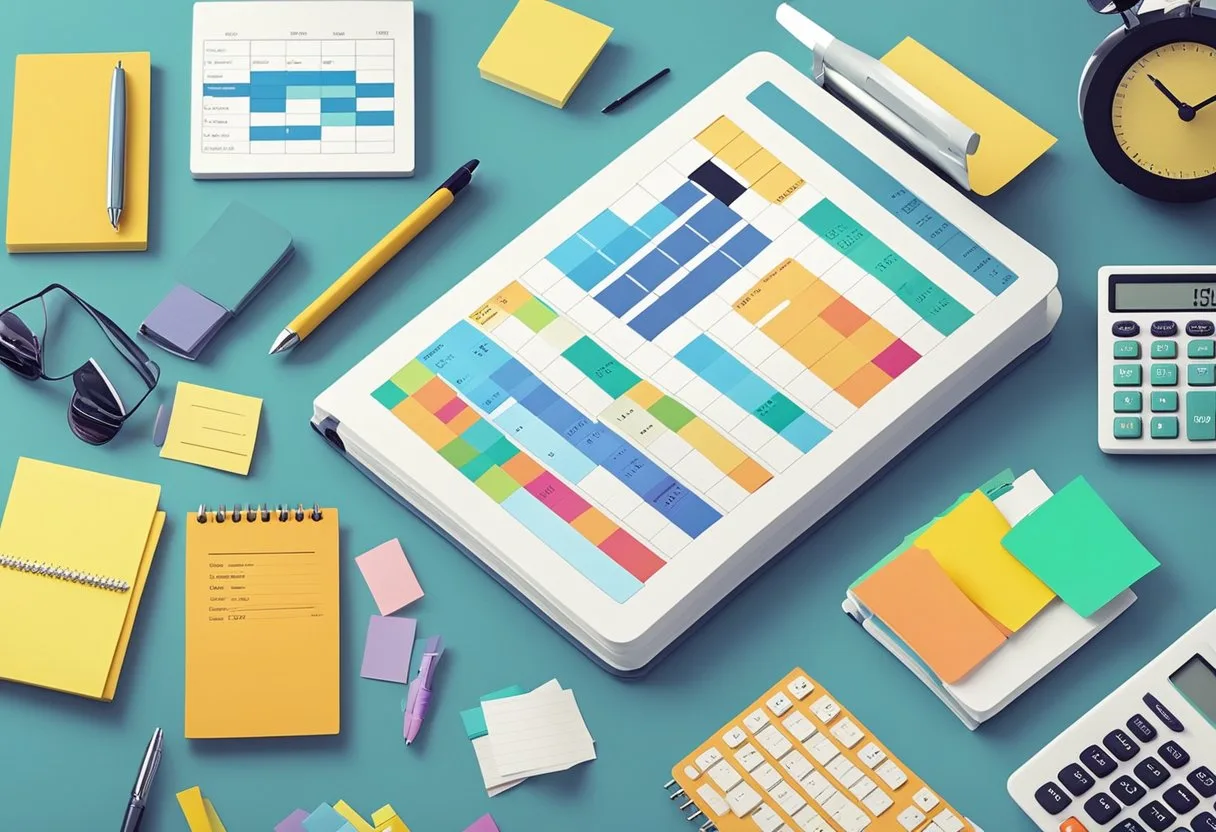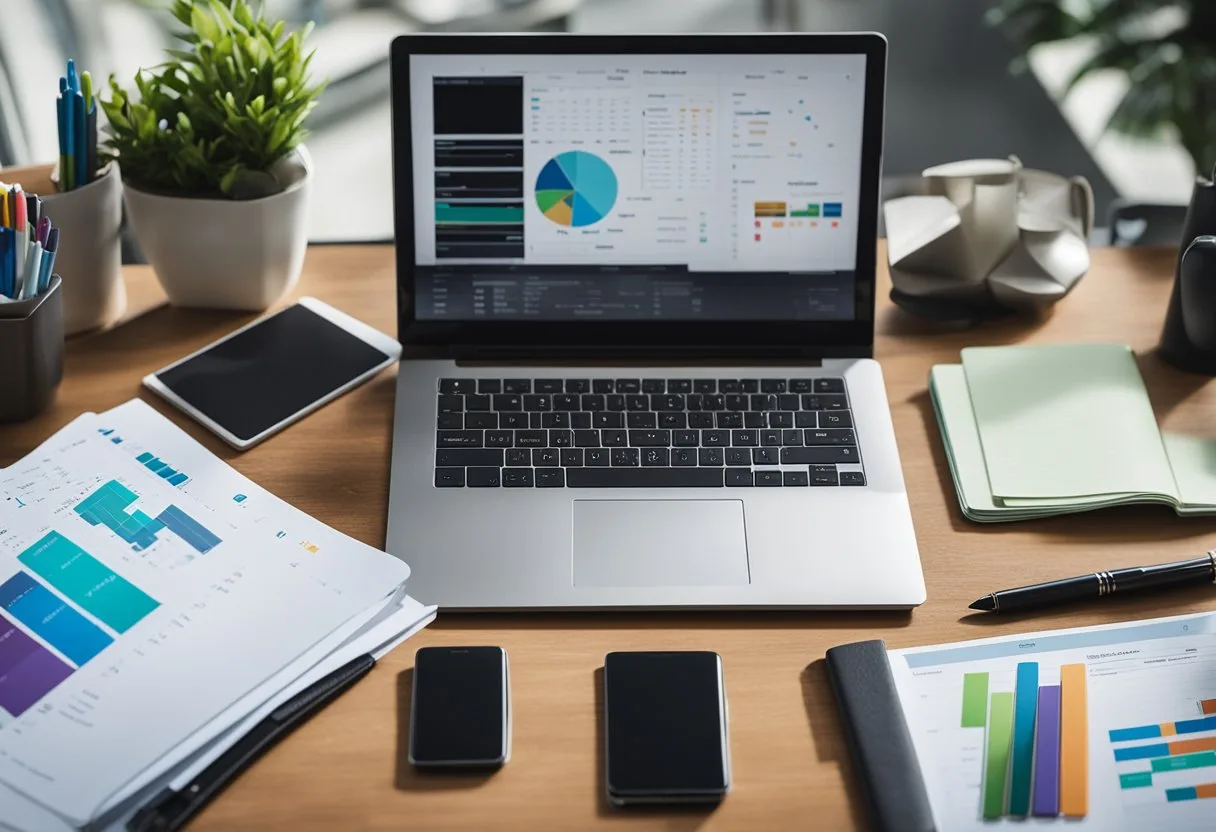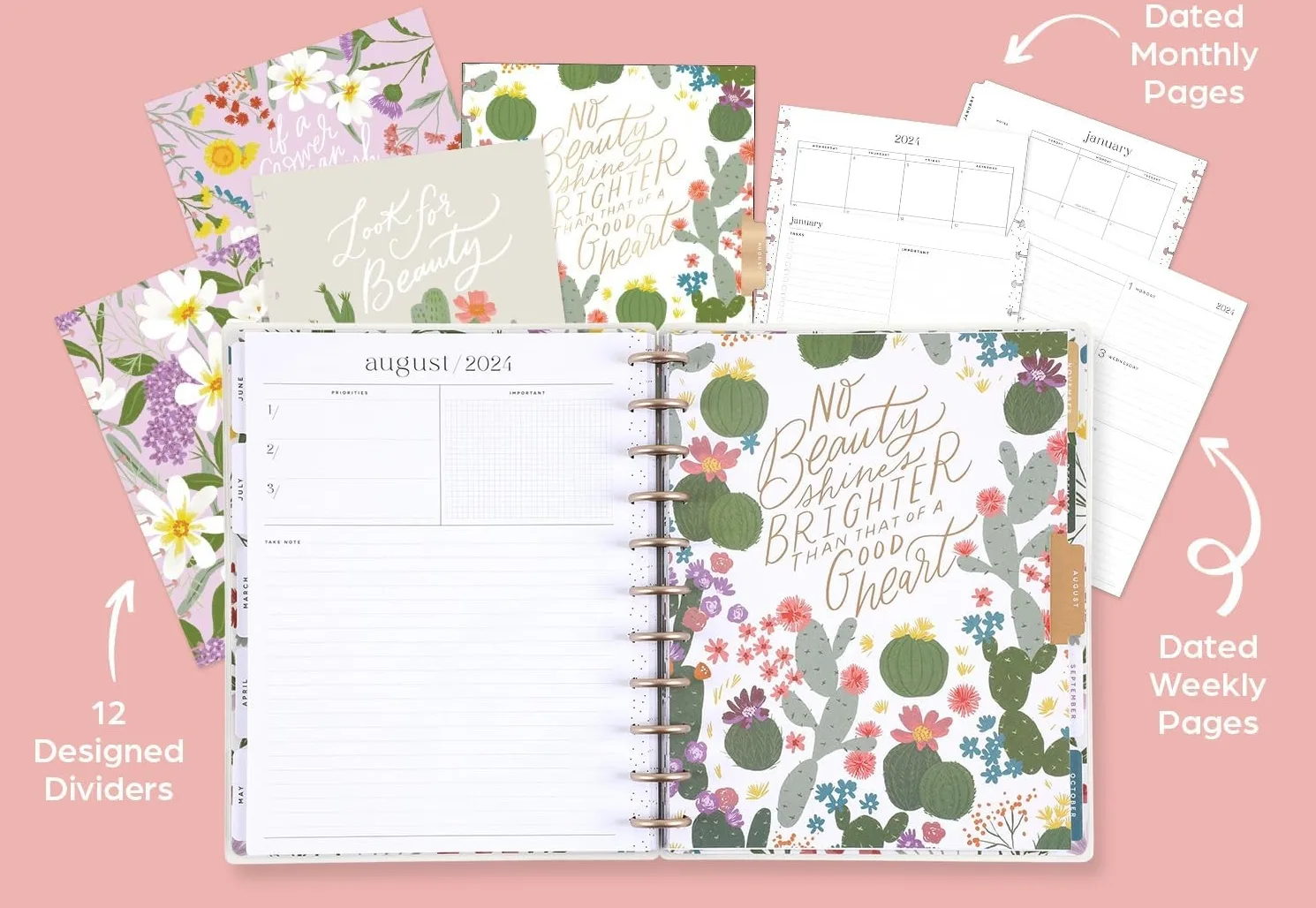Budgeting is an essential part of managing one’s finances. It helps to keep track of expenses and income, and ensure that one’s spending aligns with their financial goals. However, creating a budget plan can be overwhelming, especially for those who are new to it. Fortunately, there are various budget planner ideas that can help simplify the process and make it more manageable.
One effective budget planner idea is to use a budget template or worksheet. Many websites offer free budget templates that can be downloaded and customized to fit one’s specific needs. These templates typically include categories for income, expenses, and savings, and can be easily updated on a monthly basis. Another budget planner idea is to use a planner or journal to track expenses and income.
Understanding Your Financial Situation
Managing your finances can be a daunting task, but with the right tools and mindset, it can be done effectively. Understanding your financial situation is the first step towards creating a realistic budget that you can stick to. This section will explore two key aspects of understanding your financial situation: assessing income and expenses and setting financial goals.
Assessing Income and Expenses
Assessing your income and expenses is a critical step in understanding your financial situation. It allows you to see how much money you have coming in and going out each month. To assess your income, you need to determine your net income, which is your total income minus any taxes and deductions.
To assess your expenses, you should create a list of all your monthly expenses and categorize them into fixed and variable expenses. Fixed expenses are expenses that do not change from month to month, such as rent or mortgage payments, while variable expenses are expenses that can vary from month to month, such as groceries or entertainment.
Setting Financial Goals
Setting financial goals is another crucial step in understanding your financial situation. Financial goals can help you stay motivated and focused on your long-term financial objectives. When setting financial goals, it is essential to be specific, measurable, and realistic.
For example, if your goal is to save for a down payment on a house, you should determine how much money you need to save and by what date. You should also break down your goal into smaller, more manageable steps, such as saving a certain amount each month.
Creating a Budget Plan

Creating a budget plan is an essential step towards financial stability. It helps individuals to track their expenses and make informed decisions about their finances. Here are some tips for creating a budget plan.
Choosing a Budgeting Method
There are several budgeting methods, and individuals should choose one that best suits their financial situation. One popular method is the zero-based budget, where individuals allocate every dollar towards a specific expense or savings goal. Another method is the 50/30/20 rule, where individuals allocate 50% of their income towards needs, 30% towards wants, and 20% towards savings.
Allocating Funds to Needs, Wants, and Savings
After choosing a budgeting method, individuals should allocate their funds towards their needs, wants, and savings. Needs are essential expenses such as rent, utilities, and groceries. Wants are non-essential expenses such as dining out or entertainment. Savings are funds set aside for emergencies, retirement, or other long-term goals.
Adjusting for Irregular Income and Overtime
Individuals with irregular income or overtime should adjust their budget accordingly. They should set aside a portion of their income towards savings and prioritize their needs over their wants. It is also essential to create a budget plan that is flexible and can accommodate changes in income.
Creating a budget plan is a crucial step towards financial stability. By choosing a budgeting method, allocating funds to needs, wants, and savings, and adjusting for irregular income and overtime, individuals can make informed decisions about their finances and achieve their financial goals.
35 Budget planner ideas

Here are 35 budget planner ideas and how to initiate each one:
- Monthly Expense Tracking: Start by listing all your monthly expenses to see where your money goes.
- Income Tracker: Begin by recording all sources of income to understand your total earnings.
- Debt Repayment Plan: Start by listing all debts and organizing them by interest rate or balance.
- Savings Goals Tracker: Begin by setting specific savings goals and tracking progress towards them.
- Bill Payment Calendar: Start by noting the due dates of all bills to ensure timely payments.
- Weekly Spending Limit: Begin by setting a weekly budget for discretionary spending to control impulse purchases.
- Emergency Fund Builder: Start by determining a monthly amount to set aside for unexpected expenses.
- Subscription Audit: Begin by listing all subscriptions and memberships to evaluate their necessity.
- Grocery Spending Tracker: Start by keeping receipts and noting spending on groceries to find savings.
- Utility Usage Monitor: Begin by tracking utility usage to identify opportunities to save on energy costs.
- Holiday Budget: Start by planning for holiday expenses well in advance to avoid financial stress.
- Entertainment Allowance: Begin by setting a monthly budget for entertainment and leisure activities.
- Investment Contributions: Start by deciding on a regular contribution to investment accounts.
- Tax Planning: Begin by setting aside money for taxes if you have additional income not subject to withholding.
- Healthcare Expenses: Start by tracking medical expenses, including insurance premiums and out-of-pocket costs.
- Education Savings Plan: Begin by setting aside money for education costs for yourself or dependents.
- Travel Fund: Start by estimating the cost of planned travel and saving incrementally.
- Home Maintenance Fund: Begin by setting aside money each month for home repairs and improvements.
- Gift-Giving Budget: Start by planning for birthdays, weddings, and other gift-giving occasions.
- Vehicle Maintenance Account: Begin by budgeting for regular car maintenance and unexpected repairs.
- Retirement Savings Rate: Start by evaluating your current retirement savings and adjust contributions if necessary.
- Quarterly Financial Review: Begin by scheduling a regular check-in on your financial goals and budget performance.
- Insurance Review: Start by annually reviewing insurance policies to ensure adequate coverage and competitive rates.
- Charitable Donations: Begin by setting a budget for charitable giving and track donations for tax deductions.
- Dining Out Budget: Start by setting a limit on how much you can spend on eating out each month.
- Financial Goal Setting: Begin by defining clear, measurable financial goals for the short, medium, and long term.
- No-Spend Challenge: Start by choosing a period to avoid any non-essential spending.
- Side Hustle Income: Begin by tracking additional income from side jobs or freelance work.
- Digital Expenses: Start by tracking online purchases and digital subscriptions.
- Childcare Costs: Begin by budgeting for regular childcare expenses or planning for future needs.
- Pet Care Budget: Start by estimating annual costs for pet food, vet visits, and other pet-related expenses.
- Hobby and Recreation: Begin by allocating funds for hobbies or sports to ensure they fit within your budget.
- Personal Development: Start by setting aside money for courses, books, or seminars.
- Cash Envelope System: Begin by using envelopes for different spending categories to control cash spending.
- Financial Independence Plan: Start by calculating your financial independence number and strategize how to reach it.
Tools and Resources for Budgeting

Budgeting can be a challenging task, but with the right tools and resources, it can be a breeze. Here are some of the most effective tools and resources for budgeting:
Using Budget Planners and Worksheets
A budget planner or worksheet is a simple and effective way to manage your finances. These tools help you to keep track of your income and expenses, and to plan your budget accordingly. Budget planners and worksheets are available in a variety of formats, including Excel spreadsheets, PDFs, and printable templates.
One popular budget planner is the free budget planner worksheet from NerdWallet. This worksheet helps you to design your budget and decide how to best spend your money while avoiding overspending. The worksheet is easy to use and can be customized to fit your specific needs.
Another option is the budget template from Ramsey Solutions. This template is a great way to get everything on paper and in front of your eyes. The template is easy to use and comes with step-by-step instructions to help you set up and maintain your budget.
Digital Solutions: Apps and Spreadsheets
In addition to budget planners and worksheets, there are a variety of digital solutions available to help you manage your finances. Apps and spreadsheets are two popular options. One popular budgeting app is Mint. Mint is a free app that helps you to track your spending, set financial goals, and create a budget. The app is easy to use and can be customized to fit your specific needs.
Another option is to use a spreadsheet, such as Excel. Excel is a powerful tool that allows you to create custom budgeting spreadsheets and track your finances in real-time. There are many templates available online, or you can create your own from scratch.
There are many tools and resources available to help you manage your finances and stay on track with your budget. By using a combination of budget planners, worksheets, apps, and spreadsheets, you can take control of your finances and achieve your financial goals.
Managing and Tracking Your Spending
![]()
One of the most important aspects of budgeting is keeping track of your spending. By monitoring your transactions, you can identify areas where you are overspending and adjust your budget accordingly.
Monitoring Monthly Transactions
To effectively monitor your monthly transactions, you can use a bill tracker or budgeting software. These tools help you keep track of your spending and ensure that you are staying within your monthly budget.
Creating a spending plan can help you stay on track with your budget goals. By allocating a certain amount of money to different categories, such as groceries, transportation, and entertainment, you can better manage your spending and avoid overspending in one area.
The Envelope System and Spending Plan
One popular method for managing spending is the envelope system. With this system, you allocate cash to different envelopes for each spending category. Once the cash in the envelope is gone, you cannot spend any more money in that category until the next month.
Another way to manage your spending is to create a spending plan. This plan outlines how much money you will allocate to each spending category each month. By sticking to your spending plan, you can avoid overspending and stay on track with your budget goals.
Managing and tracking your spending is essential to effective budgeting. By monitoring your transactions and using tools like bill trackers and spending plans, you can better manage your finances and achieve your financial goals.
Optimizing Savings and Debt Management
Building an Emergency Fund
Having an emergency fund is crucial for anyone trying to optimize their savings and debt management. An emergency fund is a separate account where you save money for unexpected expenses such as car repairs, medical bills, or job loss.
To build an emergency fund, one should first determine how much money they need to save. Typically, financial experts recommend having at least three to six months’ worth of living expenses in an emergency fund.
Once you have determined how much you need to save, you can start building your emergency fund. One way to do this is by setting up automatic transfers from your paycheck to your emergency fund account.
This ensures that you save a fixed amount of money each month without having to remember to do it manually. You can consider opening a high-yield savings account that offers a higher interest rate than a traditional savings account, which can help you grow your emergency fund faster.
Strategies to Reduce Debt
Reducing debt is another important step in optimizing savings and debt management. One strategy is to create a budget and stick to it. This involves tracking your income and expenses and allocating your money towards paying off debt. You can use a budgeting app or spreadsheet to help you create and manage your budget.
Another strategy is to use the debt snowball method, which involves paying off your smallest debt first and then using the money you were paying towards that debt to pay off the next smallest debt. This method can help you build momentum and motivation as you see your debts disappearing one by one.
To these strategies, it’s important to set clear savings goals and prioritize paying off debt. This can involve making sacrifices such as cutting back on unnecessary expenses or finding ways to increase your income. By taking these steps, you can optimize your savings and debt management and work towards achieving financial freedom.
Frequently Asked Questions
What essential elements should a budget planner contain?
A budget planner should contain a clear and concise list of all income sources and expenses. It should also include a section for savings and emergency funds. A budget planner should be easy to read and understand, and it should be updated regularly to reflect any changes in income or expenses.
How does the 50/30/20 rule apply to budget planning?
The 50/30/20 rule is a budgeting method that suggests allocating 50% of your income to necessities, 30% to discretionary spending, and 20% to savings and debt repayment. This rule can be a useful guideline for budget planning, but it is important to adjust it to fit your specific financial situation.
What are the steps to creating an effective budget planner?
The first step in creating an effective budget planner is to gather all of your financial information, including income sources and expenses. Next, you should categorize your expenses and create a budget based on your income and financial goals. It is important to regularly review and adjust your budget as necessary.
Can you suggest some tips for maintaining a budget planner?
Some tips for maintaining a budget planner include setting realistic financial goals, tracking your spending regularly, and adjusting your budget as necessary. It is also important to be consistent and disciplined in your budgeting efforts, and to regularly review and update your budget planner.
What are the benefits of using a weekly versus a monthly budget planner?
Using a weekly budget planner can help you track your spending more closely and make adjustments more quickly. However, a monthly budget planner can provide a broader overview of your finances and help you plan for larger expenses and savings goals.
How can one customize a budget planner template in Excel?
To customize a budget planner template in Excel, you can add or remove columns, change the formatting, and adjust the formulas to fit your specific financial situation. It is important to make sure that your customized budget planner is easy to read and understand, and that it accurately reflects your income and expenses.




